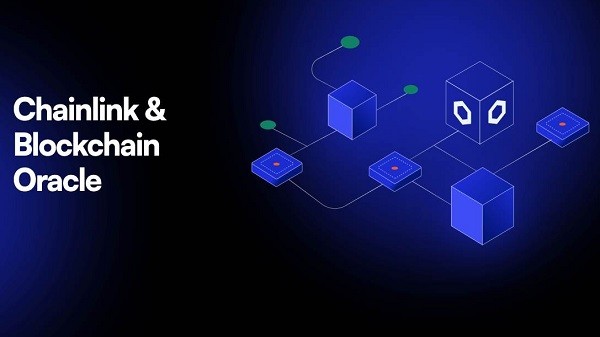Discovering the Link: Bitcoin and the Chainlink Oracle Network

Blockchain technology has catalyzed a transformative era of decentralized finance and applications, with Bitcoin trailblazing as the inaugural digital currency. Nevertheless, Bitcoin, although revered, encounters constraints regarding its capacity for smart contract execution and seamless real-time data assimilation. Enter Chainlink’s decentralized oracle network, a pivotal solution poised to resolve the disconnect between Bitcoin and external data sources. Within this dynamic and ever-evolving landscape, the Diverse Blockchain Ecosystem and forward-looking innovations are actively reshaping the trajectory of digital finance, propelling it toward new frontiers of possibility.
Understanding Bitcoin
Brief History of Bitcoin
Bitcoin, created by the pseudonymous Satoshi Nakamoto in 2008, introduced the world to a decentralized digital currency. Its innovative use of blockchain technology allows for secure peer-to-peer transactions without the need for intermediaries.
Bitcoin as a Decentralized Digital Currency
Bitcoin operates on a decentralized network of nodes, ensuring censorship resistance and immutability. Its limited supply of 21 million coins and proof-of-work consensus mechanism contribute to its scarcity and security.
Limitations of Bitcoin’s Smart Contract Capabilities
While Bitcoin’s primary purpose is to serve as a digital currency, it lacks the advanced scripting capabilities found in platforms like Ethereum. This limitation hinders its ability to interact with external data and execute complex smart contracts.
Introducing Chainlink and Oracles
What is Chainlink?
Chainlink is a decentralized oracle network designed to connect blockchain smart contracts with real-world data and external systems. It acts as a middleware layer, facilitating trustless interactions between blockchains and the outside world.
The Role of Oracles in Blockchain Networks
Oracles serve as bridges between blockchain networks and off-chain data sources, enabling smart contracts to access real-time information. Chainlink’s decentralized oracle network consists of nodes that fetch and validate external data, making it tamper-proof and reliable.
How Chainlink’s Decentralized Oracle Network Functions
Chainlink employs a network of nodes that aggregate data from various sources, such as APIs, IoT devices, and traditional databases. The data is then fed into smart contracts on supported blockchains, ensuring accuracy and security.
The Link Token and Its Significance
Chainlink’s native cryptocurrency, LINK, plays a crucial role in incentivizing node operators and securing the network. It is used as collateral and a means of payment within the Chainlink ecosystem.
The Need for Oracles in the Bitcoin Ecosystem
Challenges of Connecting Bitcoin to External Data Sources
Bitcoin’s primary focus on security and simplicity has led to a lack of built-in support for external data inputs. This makes it challenging to execute smart contracts that require real-world data.
Real-World Applications for Bitcoin Oracles
Oracles can unlock a plethora of use cases for Bitcoin, including decentralized finance (DeFi), prediction markets, supply chain tracking, and more. These applications require timely access to external data.
Security and Trust Considerations in Oracle Integration
Integrating oracles into Bitcoin introduces new security and trust considerations. Ensuring data accuracy and protection against malicious actors is paramount to maintain the integrity of the blockchain.
Bridging the Gap: Bitcoin and Chainlink Integration
Overview of Efforts to Integrate Chainlink with Bitcoin
Developers and projects have been actively exploring ways to integrate Chainlink with Bitcoin, primarily through sidechains, Layer 2 solutions, and atomic swaps.
Use Cases and Benefits of Connecting Bitcoin with Chainlink
The integration of Chainlink’s oracle network with Bitcoin opens doors to DeFi applications, decentralized identity, supply chain tracking, and more. It enables smart contracts on Bitcoin to execute based on real-world events and data.
Technical Aspects of Creating a Bitcoin Oracle Using Chainlink
Building a Bitcoin oracle involves creating Chainlink node services capable of retrieving Bitcoin-specific data, such as price feeds and transaction information. Smart contracts can then reference this data for execution.
Case Studies
Highlighting Successful Projects Integrating Bitcoin and Chainlink
Examine real-world projects that have successfully integrated Bitcoin with Chainlink, showcasing their impact on the blockchain ecosystem.
Analyzing the Impact of These Projects on the Blockchain Industry
Evaluate how these projects have pushed the boundaries of what’s possible with Bitcoin and Chainlink, potentially setting new standards for blockchain interoperability.
Potential Future Developments in the Field
Discuss emerging trends and potential innovations in the integration of Bitcoin and Chainlink, such as the growth of decentralized autonomous organizations (DAOs) and the expansion of the oracle network.
Challenges and Future Prospects
Discussing the Challenges and Obstacles in Connecting Bitcoin with Chainlink
Delve into the challenges that developers and projects face when integrating Bitcoin and Chainlink, including technical complexities and regulatory considerations.
Potential Solutions and Innovations on the Horizon
Explore potential solutions and innovations that may address the challenges, such as Layer 2 solutions for Bitcoin, improved oracle security, and decentralized oracle marketplaces.
The Evolving Role of Oracles in the Broader Blockchain Ecosystem
Consider how the integration of oracles will continue to impact the broader blockchain ecosystem, potentially reshaping the landscape of decentralized applications and services.
Conclusion
In conclusion, the integration of Chainlink’s decentralized oracle network with Bitcoin represents a significant step towards expanding the utility of blockchain technology. By addressing the challenges of real-world data integration, this synergy has the potential to unlock a myriad of use cases, from decentralized finance to supply chain management, while also paving the way for novel applications yet to be imagined. As the blockchain ecosystem continues to evolve, the collaboration between Bitcoin and Chainlink serves as a beacon for the industry’s ongoing quest to achieve seamless interoperability and reliable data connectivity, ushering in a new era of decentralized innovation and trust in the digital age.




